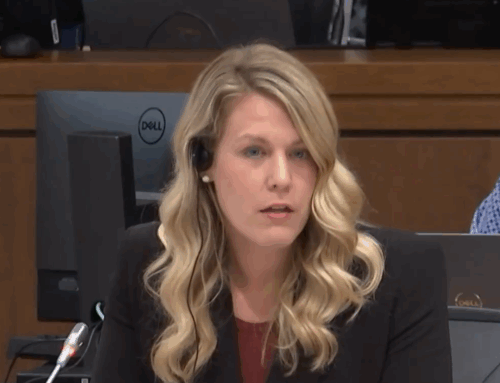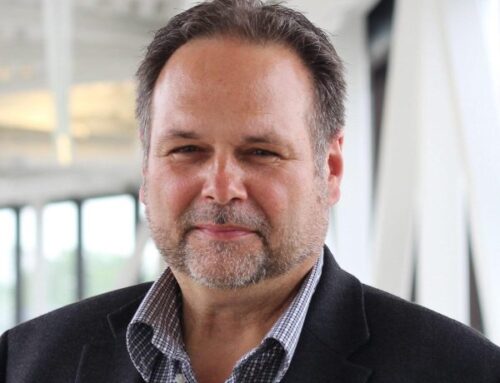
Paul Tuns, Commentary:
Pope Francis died on April 21 at the age of 88, after leading the Catholic Church for 12 years as its 266th pope. There were numerous articles and essays exploring his legacy. One cannot help but think of the apocryphal comment by Zhou Enlai, the Chinese Communist revolutionary, in the 1970s, when asked what he thought of the French Revolution: “it is too early to tell what its impact is”.
Whatever the long-term legacy of Pope Francis — the changes in how the Roman Catholic Church operates and the personal influence he will wield beyond the grave by appointing fully three-quarters of the Cardinals that will choose his successor and lead the Catholic Church well into the 21st century – there were no great departures on the Catholic Church’s teaching on life issues.
“Pope Francis, like his predecessors, was a strong advocate for the value and dignity of every human life, from conception to natural death,” said Carol Tobias, president of National Right to Life. “His stalwart support of the right to life was grounded in compassion and love.” She said, “Pope Francis will be remembered for his dedication to the most vulnerable among us and for championing the right to life.”
Campaign Life Coalition issued a statement on the death of Pope Francis. It acknowledged, “As Successor of the Prince of the Apostles and head of the Catholic Church, Pope Francis was a global advocate for human dignity, consistently upholding the sanctity of life in many of his teachings and public addresses,” and that “His words and actions reinforced the Catholic Church’s long-standing commitment to the defense of life, from conception to natural death.”
CLC noted that throughout his pontificate, Pope Francis spoke out against abortion, repeatedly calling it a “grave sin,” “crime,” “absolutely evil,” and “homicide.” Time and again he compared procuring an abortion the equivalent to hiring a “hitman” or “assassin.”
Early in his pontificate in 2013, Pope Francis speaking to the Dignitatis Humanae Institute, a pro-life group based in Rome, criticized the “throwaway culture:” “The victims of such a culture are precisely the weakest and most fragile human beings – the unborn, the poorest people, sick elderly people, gravely disabled people… who are in danger of being ‘thrown out,’ expelled from a machine that must be efficient at all costs.”
In October 2018, Pope Francis asked: “Is it right to hire a hitman to solve a problem? You cannot, it is not right to kill a human being, regardless of how small it is, to solve a problem. It is like hiring a hitman to solve a problem.”
Pope Francis often called on all Christians to foster a “civilization of love,” which would free women “from the pressures that push them not to give birth to their child.”
During interviews with reporters last September, Pope Francis said, “You don’t play with life, neither at the beginning nor at the end. It is not played with!” He referred to abortion and euthanasia as “bad compassion.”
During his New Year’s Day address earlier this year, Pope Francis reiterated the “firm commitment” all Christians must have to “respect the dignity of human life from conception to natural death, so that each person may cherish his or her own life and all may look with hope to the future.”
While convalescing from an illness that put him on the sidelines for nearly two months earlier this year, Pope Francis sent a message to the pilgrimage organized by the Italian Movement for Life. His address, delivered by Cardinal Secretary of State Pietro Parolin during a Mass in St. Peter’s Basilica, said that unborn children are like any other person who needs an advocate. “The unborn child represents, in the fullest sense, every man and woman who does not count, who has no voice,” Cardinal Parolin read out. “Taking their side means standing in solidarity with all the discarded of the world.”
CLC noted Pope Francis often emphasized “pastoral accompaniment” and “mercy” for sinners and those on the margins, including for those mothers who had aborted their children. Sometimes Pope Francis’s focus on accompaniment and mercy, especially on family issues, sent mixed messages regarding the clear moral teaching of Catholic Church on the indissolubility of marriage and sinfulness of homosexual behaviour.
Pope Francis’s receptivity to sinners also sent mixed signals on abortion, such as when he praised and visited Italian abortionist Emma Bonino. In the 1970s, Bonino entered politics and successfully pushed for the legalization of abortion, co-founded the Information Centre on Sterilization and Abortion, and admitted to committing over 10,000 illegal abortions. She never repudiated her pro-abortion activism and yet in 2016, Pope praised her as one of Italy’s “forgotten greats,” and granted her in a private audience. In 2022, he said “I have great respect for Emma Bonino” and in 2024, the Pope personally visited Bonino in her home. It is hard to square Pope Francis’s criticism of abortionists as mafia hitmen and his praise of an actual abortionist. If “accompaniment” means anything holy, like “meeting people where they are at,” it’s to bring them back home, to Christ. Pope Francis’s overtures to people like the abortionist Bonino did not signal the ultimate destination of such meetings.
Not all pro-life leaders were laudatory following the death of Pope Francis.
Frank Pavone, national director of Priests for Life and the national pastoral director of Rachel’s Vineyard Ministries and the Silent No More Awareness Campaign, was laicized by Pope Francis in 2023. He issued a statement saying a pope is “responsible to strengthen his fellow believers in the teachings of Christ, which are not his own teachings.” Pavone said “the papacy of Francis has been a failed papacy, because it has been a papacy of confusion.” He said every pope “is called to make the faith more clear (sic), so that believers may embrace it with more certainty” but “unfortunately, the effects of Pope Francis’ pontificate have been just the opposite.”
Pavone said Pope Francis said and did many things, “such as his blessing of gay couples” that required pages of nuanced theological explanation to justify,” which is by definition providing a less-than-clear example of pastoral care.
One need go so far as Pavone in saying that many “decisions of Pope Francis have wounded the Church, from appointments he has made of people whose loyalty to the faith is questionable, to suppressing legitimate expressions of the Church’s liturgy, to unfairly criticizing those who embrace conservative politics.”
Many non-Catholics look to the papacy for moral leadership in times when the world seems to have lost its way on moral issues.
Carl R. Trueman wrote a scathing essay at First Thing titled “Pope Francis, my worst Protestant nightmare.” Trueman, writing from the perspective of an ordained minister in the Orthodox Presbyterian Church, said Pope Francis was “certainly solid” on matters such as abortion, transgenderism, and care for the poor, “as one would expect any Christian with a basic catechetical knowledge of the faith to be.” Yet, Trueman lamented, “in other areas, he was more problematic.” Intellectually, he was “lackluster compared to his two predecessors,” Popes John Paul II and Benedict XVI. Considering the pope’s intellectual limits, Francis, Trueman argued, should have placed “the intellectual project of Catholicism into the hands of serious thinkers,” but instead he appointed Victor Manuel Fernández, author of the scandalously lurid Heal Me with Your Mouth and Mystical Passion, to head the Dicastery for the Doctrine of the Faith.
Furthermore, Trueman wrote, Pope Francis sided with former speaker of the House of Representatives Nancy Pelosi in her feud with San Franciso Archbishop Salvatore Cordileone who had barred her from receiving Holy Communion due to her unrepentant support of abortion. The Pontiff went so far as to give Pelosi “the Sacrament himself while she was visiting the Vatican,” signaling to her (and other pro-abortion politicians) “that her evil was of no consequence to her or the unborn victims of her political ambitions.”
Trueman also criticized Pope Francis for the “constant sound bites that caused such trouble,” which were more than the ramblings of an elderly pontiff. (He once criticized Filipinos for “breeding like rabbits”). “Over time,” Trueman wrote, “the persistence of the gaffes made them look more intentional and less pardonable” as they sewed confusion among the faithful.
Trueman said it was apropos of Francis that during his papacy there was Jesuitical splitting of hairs over blessing individuals in same-sex relationships but not their (sinful) same-sex relationship, which caused chaos, confusion, and “empowered those looking to shift the Catholic Church’s teaching in a progressive direction.”
Trueman concluded, “Francis was thus my own worst Protestant nightmare: an authoritarian Roman pope driving a liberal Protestant agenda, a leader who embodied the worst of all possible Christian worlds.”
That “liberal Protestant agenda” may be said to include liberalizing the Catholic Church’s stance toward homosexuality. Fr. James Martin, an advocate for self-described LGBQT Catholics, wrote in the New York Times that Pope Francis was an “ally” of Catholics who identify as gay or trans even if he didn’t reverse the clearly enunciated view of the Church, in the words of Cardinal Joseph Ratzinger (later Pope Benedict XVI), that homosexual behaviour was an “intrinsic evil.” Pope Francis repeatedly condemned gender ideology, yet regularly welcomed gender confused men masquerading as women and women pretending to be men. Lacking an intellectually rigorous and clearly articulated teaching on matters of sexual morality and identity, the mixed signals of Pope Francis has probably led more Catholics into error on these issues than toward the historical moral teachings of the Church.
The Interim is not interested in litigating the internal conflicts within the Roman Catholic Church, as important as they are to many involved in this paper (and its readers). Like all human beings, popes make mistakes and are capable of truly heroic feats. We at The Interim thank Pope Francis for his clear statements about the moral egregiousness of abortion and euthanasia, and when he took care in his instruction, highlighting Church’s opposition to homosexuality and transgenderism. We pray that the 267th pope continue to uphold Catholic moral teaching on life and family issues, without the distraction of confusing signals.




